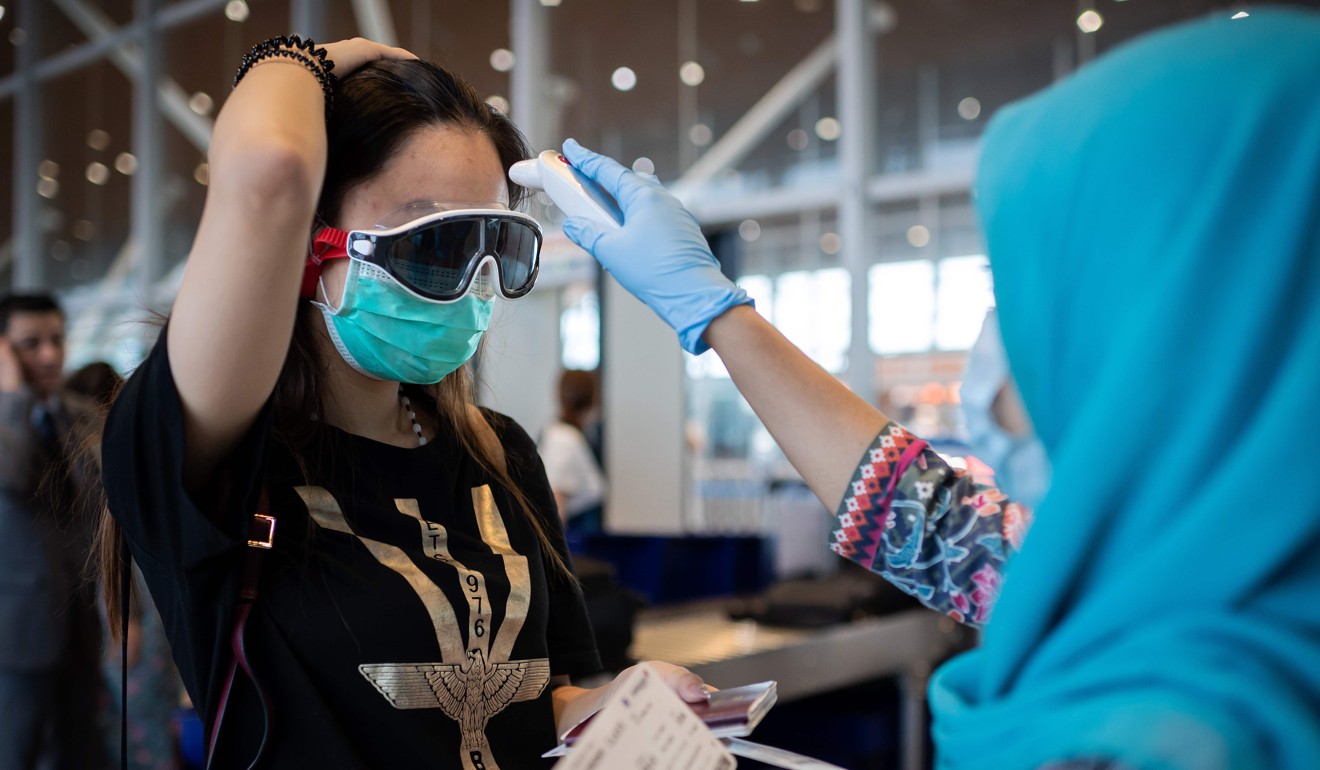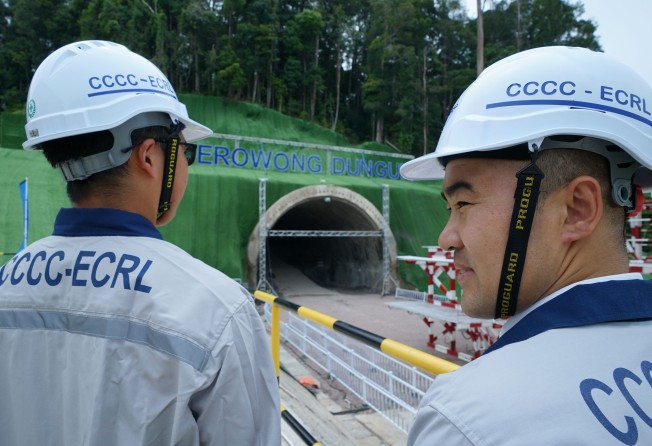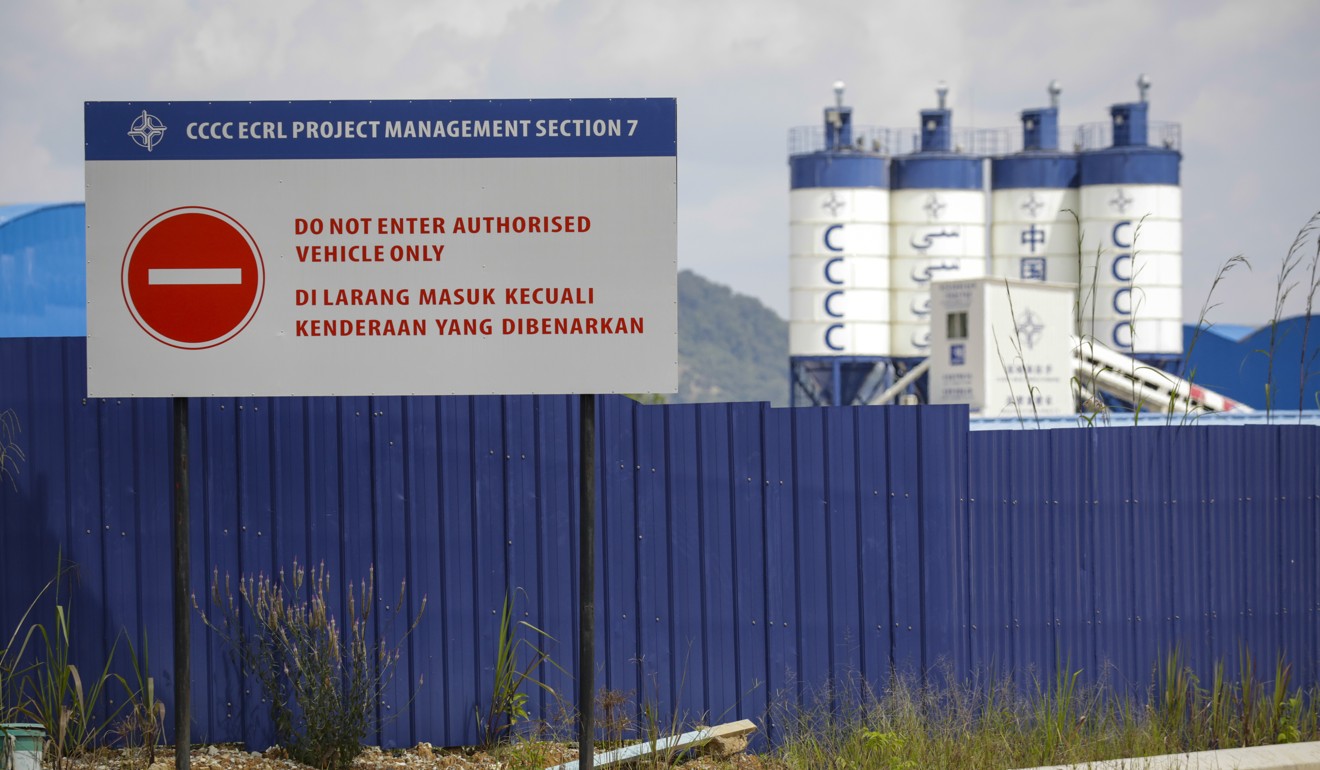
Coronavirus: Malaysia says China-backed ECRL on track despite outbreak
- About 200 Chinese nationals working on the 640km megaproject had to complete 14 days of self-quarantine upon returning from China
- Some managerial staff who hail from the province at the epicentre of the outbreak remain on indefinite leave, however

Malaysia’s Beijing-backed East Coast Rail Link project is on track and has suffered no setbacks as a result of the coronavirus outbreak, top government officials have assured the public.
About 1,000 of the workers building the 640km megaproject are Chinese nationals, according to project owner Malaysia Rail Link, but only 200 or so returned to China over the recent Lunar New Year holiday and all of these completed a 14-day period of self-quarantine before being allowed to resume work.
Thirteen managerial staff who hail from Hubei, the province at the epicentre of the outbreak that has been put under government lockdown, remain on indefinite leave.
Fears over the spread of the coronavirus, which causes a pneumonia-like disease known as Covid-19, have led some countries such as Singapore to impose travel bans on all returning Chinese nationals who live and work on their shores.

Malaysia’s own travel restrictions have been more targeted, focusing only on the Chinese provinces worst hit by the outbreak which has killed more than 2,000 of the upwards of 75,000 people it has infected so far.
In a statement issued over the Lunar New Year, Malaysia Rail Link assured the public that extensive preventive measures had been put in place, including thermal screening and health monitoring of workers for the virus.
The ECRL project, which Malaysia’s Transport Minister Anthony Loke last week announced was almost 15 per cent complete with completion expected by mid-2026, is part of Beijing’s global belt and road trade initiative.
It was agreed to in 2016 by Najib Razak, the disgraced former prime minister of Malaysia who was voted out in 2018 and is currently on trial for multiple charges of corruption.
His successors, the current ruling Pakatan Harapan coalition, suspended the project – along with other China-backed infrastructure deals – soon after coming to power, citing exorbitant costs and unfair terms put forth by the main contractor, the China Communications Construction Company.

The rail link, which was intended to bridge the development gap between Peninsular Malaysia’s east and west coasts and bolster economic growth, was later renegotiated and China agreed to slash the price by US$10 billion – a 34 per cent reduction – as well as reduce the length by 40km and increase local participation.
The ECRL, observers says, serves as a bellwether for the Belt and Road Initiative’s greater acceptance in Malaysia. It is seen as a “flagship” project, particularly due to the number of concessions made by Beijing in the renegotiations, and despite the low domestic appetite for another large infrastructure project.
“Malaysia has to assure the public [of] why it supports a project that the present governing coalition felt was nonviable before, so both sides have incentives to make it work,” said Ngeow Chow Bing of the Institute of China Studies at the University of Malaya.
“It also coincides with the support of [Malaysia’s] state governments … so a lot more parties are supportive of the project now.”